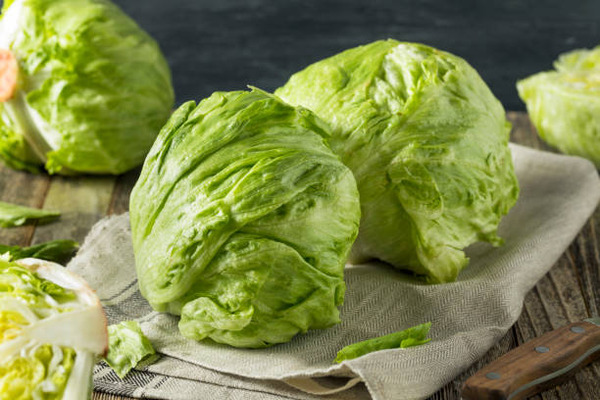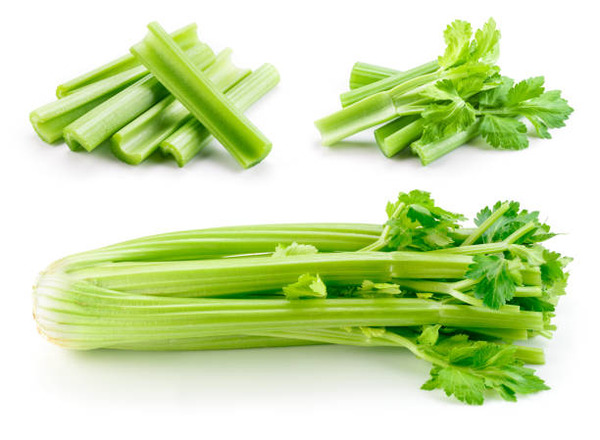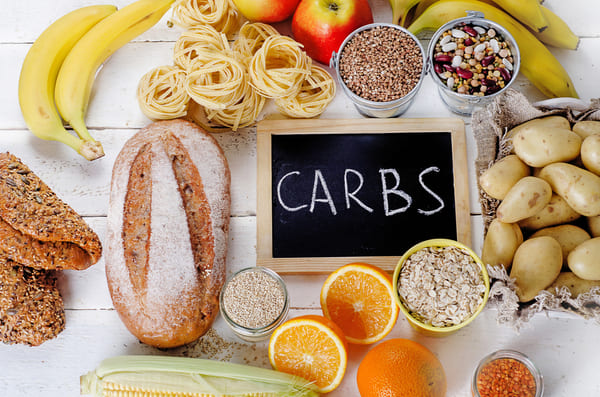Discover the Top Low-Carb Fruits and Vegetables List for Optimal Wellness
What Are the Lowest-Carb Fruits and Vegetables?
👉 Fruits with the lowest carb content are berries, which are loaded with antioxidants and fiber, and avocado, known for its healthy fats. Leafy greens like spinach, kale, lettuce, and cruciferous vegetables such as broccoli and cauliflower are also low in carbs and packed with nutrients. Below is our full low-carb fruits and vegetables list.
Ensuring you get enough fruits and vegetables can be challenging for many. But they are incredibly important for our health. These nutrient-packed foods not only help our bodies function properly but they have also been extensively studied and shown to lower the risk of certain diseases.
Fresh fruits and vegetables offer many health benefits. They are also low in calories, making them a popular choice for weight-conscious individuals. However, people on low-carb diets may have concerns about their sugar and carb content. Looking for a low-carb fruits and vegetables list?
Fruits and vegetables do contain carbs, but don’t let that discourage you. The key is to choose the right ones in the right amounts. By doing so, you can still enjoy the health benefits of these delicious and versatile foods while managing your carb intake.
Check out our top low-carb fruits and vegetables list to add to your healthy low-carb diet.

Table of Contents
- Low-Carb Fruits and Vegetables List
- Other Low-Carb Foods
- Low-Carb Diets
- Low-Carb Fruits and Vegetables List FAQs
- Final Thoughts
Low-Carb Fruits and Vegetables List

Low-Carb Fruits
Strict low-carb diets, such as the keto diet, usually exclude most fruits. This is because fruits generally contain more carbs than vegetables, primarily due to their higher natural sugar content.
However, these sugars aren’t necessarily harmful. In fact, when consumed in moderate amounts, they can serve a healthy purpose without excessive carb intake for most individuals.
Fruits have three types of naturally occurring sugars: glucose, fructose, and sucrose. Unless you’ve been advised otherwise, you can include fruits in your low-carb diet.
Certain fruits have fewer carbs per serving because of their higher water content or have fewer absorbable carbohydrates due to their fiber content.
Fiber is a type of carbohydrate that your body cannot absorb, thus it does not impact your blood sugar levels like other carbs. As a result, some people prioritize net carbs over total carbs.
To calculate a food’s net carb value, subtract the grams (g) of fiber from its total carbohydrates.
Here’s our list of the lowest-carb fruits.
Berries

Berries are a great option for those who are mindful of their carb intake. All berries, especially blackberries, raspberries, and strawberries, are low in carbs and high in fiber. This makes them satisfying and delicious without excessive sugar.
In a 100g serving of strawberries, you’ll find 7.68g of carbohydrates and 2g of fiber, resulting in a net carb count of 5.68g.
On the other hand, 100g of blackberries packs 9.61g of carbohydrates, but with an impressive 5.3g of fiber, leaving a mere 4.31g of net carbs.
Raspberries are another great choice, with 11.9g of total carbohydrates, 6.5g of fiber, and only 5.44g of net carbs per 100g serving. They are also rich in antioxidants, potassium, vitamin C, and other essential nutrients.
Additionally, these berries contain phytochemicals, compounds that can help prevent chronic diseases.
Avocado

Avocados are a keto diet staple as they have a relatively low amount of carbohydrates. In every 100g of avocado, you’ll find approximately 8.53g of carbohydrates and 6.7g of fiber, resulting in just 1.83g of net carbohydrates.
Additionally, including this low-carb fruit in your diet provides healthy monounsaturated fats that promote heart health. You can add sliced avocado to salads or wraps, or enjoy it with eggs for a low-carb breakfast.
Watermelon

Watermelon boasts the fewest carbs, packing a mere 7.55g per 100g of fruit. Its low fiber content ensures most of these carbs are readily absorbed.
Furthermore, watermelon is rich in vitamin A and has a high water content, making it a satiating choice with fewer calories. Surprisingly, even the rind offers health benefits!
Star fruit

While less popular, star fruit can be a refreshing and nutritious addition to a low-carb diet because of its rich vitamin content. With 6.73g of total carbohydrates and 2.8g of dietary fiber per 100g serving, it provides only 4.3 grams of net carbs.
Starfruit is packed with vitamins C and B6, phosphorus, and iron. Its subtly sweet taste makes it great for snacking, adding to salads, or garnishing desserts.
Cantaloupe

Melons are a low-fructose option for those mindful of their sugar intake. This popular orange melon is perfect for a hot summer day. It has only 8.16g of carbs and 0.9g of fiber per 100g of fruit, resulting in just 7.26g of net carbs.
Cantaloupe can aid in lowering blood pressure, protecting against cell damage caused by free radicals, bolstering immunity, and promoting better digestion.
Enjoy cantaloupe on its own or add it to salads or smoothies. For a refreshing drink, try blending cantaloupe with lime, mint, and water to create a delicious agua fresca.
Honeydew

Honeydew, another type of melon, contains 9.09g of carbohydrates and 0.8g of fiber per 100g of fruit, resulting in a net carb value of 8.29g.
It is also rich in vitamin C and potassium, which are important for maintaining healthy blood pressure, pH balance, and metabolism.
Low-Carb Vegetables

Vegetables are often considered better than fruits in terms of carbs. They usually have less sugar and, therefore, fewer carbs compared to fruits.
Even if you’re cutting carbs, vegetables should still be a vital source of nutrition in your diet. They’re packed with fiber, have fewer calories per serving compared to other food groups, and contain a variety of beneficial compounds like phytochemicals, vitamins, and minerals.
Generally, vegetables with higher water content have lower carb content per serving. Here are the top low-carb choices.
Spinach

For every 100g of spinach, it contains 3.6g of carbs. To give you an idea, that’s roughly 1g of digestible carbs per cup.
So go ahead and enjoy a spinach omelet for a low-carb breakfast or spinach salad with lean proteins, fresh berries, or avocado on top for lunch.
Asparagus

Asparagus boasts a mere 3.88g of carbs per 100g. Savor it by steaming it to perfection or giving it a light brush of olive oil before roasting it in the oven or air fryer. For the finishing touch, a spritz of fresh lemon juice elevates its flavors.
Iceberg lettuce

Iceberg lettuce is a widely popular, yet less nutritious vegetable with only 2.97g of carbohydrates per 100g. Combine it with other veggies from this list for a nutrient-rich, low-carb salad.
Cucumber

Cucumbers make a delightful and nutritious addition to salads or as a low-carb snack! When peeled, they contain a mere 2.16g of carbs per 100g.
If you prefer to keep the peel, the carb count is slightly higher at 3.63g but remains quite low.
Zucchini

Zucchini is an excellent low-carb substitute for starchy veggies like potatoes in French fries. You can try thinly slicing and grilling or roasting zucchini, then layering it with other veggies and sauce for a low-carb “lasagna.”
You can also transform zucchini into noodles, or “zoodles,” using a spiralizer or serrated peeler. This provides a tasty and low-carb substitute for pasta, with just 3.11g of carbs per 100g.
Cauliflower

Cauliflower is a versatile vegetable used in many low-carb recipes. You can mash it, roast it, or use it to make cauliflower rice or pizza crust for a healthy and tasty dinner.
Cauliflower contains only 4.97g of carbs and 2g of fiber, resulting in just 2.97g of net carbs per 100g serving. It can be a delicious and low-carb substitute for rice or other grains.
Simply grate it using a food processor. Then, serve it cooked or raw as a side dish or mixed with other vegetables and protein. Top it off with a dressing of your choice.
Broccoli
Raw broccoli is a nutrient-packed cruciferous vegetable. It has 6.64g of carbs and 2.6g of fiber, resulting in just 4.04g of net carbs per 100g.
Enjoy it in a salad, lightly steamed, roasted, or in a stir-fry with protein and other veggies in a drizzle of olive oil.
Mushrooms

If you’re craving an earthy and savory flavor, mushrooms are an ideal choice with just 3.2g of carbs per 100g. Whether you roast or sauté them in butter, garlic, and herbs, they make a delicious side dish or main course.
These low-carb vegetables are delicious and rich in nutrients such as phytochemicals, vitamins, and minerals. Including them in your meals and snacks can provide your body with fuel and help maintain balanced blood sugar levels.
Bell peppers

Bell peppers are a versatile delight, whether enjoyed raw for a light and crunchy snack or sautéed alongside your favorite vegetables. With just 5.88g of carbs per 100g, they make a deliciously healthy addition to any stir-fry or salad.
Carotenoids, found in them, are antioxidants that can help reduce inflammation, lower cancer risk, and protect cholesterol and fats from oxidative damage.
Celery

Celery contains approximately 2.97g of carbohydrates per 100g. This versatile vegetable can be enjoyed in salads, casseroles, or even with unsweetened nut butter.
Radishes

Radishes contain only 3.4g of carbs per 100g and are a delicious and nutritious vegetable that is often overlooked.
You can enjoy it roasted or add sliced radishes to salads or enjoy them whole with a pinch of salt or dipped in your favorite spread or dressing.
Arugula
Arugula is a nutrient-dense leafy vegetable with only 3.65 g of carbs per 100 g. It has a peppery-spicy flavor and is rich in vitamin A, vitamin K, vitamin C, folate, and calcium.
Enjoy it in salads, mixed greens, or cooked into sauces, soups, or stews.
Tomatoes

Although classified as a fruit, tomatoes are commonly considered vegetables in culinary. They have 3.89 g of carbs and 1.2 g of fiber, resulting in 2.69 g of net carbs per 100 g serving.
Enjoy them raw as a healthy snack with salt and pepper, as salad or sandwich toppings, or cooked into soups or sauces.
Other Low-Carb Foods
For a healthy and well-rounded low-carb diet, include not only low-carb foods but also nutrient-dense options like the ones listed below.
Nuts and Seeds

Nuts and seeds, like almonds, walnuts, chia seeds, and flaxseeds, are unsung heroes on the keto food list. They provide a satisfying crunch, texture, and a healthy dose of fats and protein to your meals.
These small yet mighty snacks are perfect for keeping you energized between meals, making them a must-have for a successful keto journey.
Enjoy a handful of almonds or walnuts as a midday snack or sprinkle chia seeds over your morning oatmeal. Each bite contributes to your low-carb adventure.
Nut and seed butter also provide the same health benefits as whole nuts and seeds.
Lean Proteins

Choose lean poultry, fatty fish, and eggs to meet your protein requirements while sticking to your low-carb commitment. These protein sources help maintain muscles and enhance the flavor of your meals.
The protein keto food list offers you the flexibility to enjoy a range of meats and eggs, ensuring that your journey is both satisfying and nutritionally sound.
Dairy

When adding dairy to your diet, avoid flavored or sweetened options as they can raise your carb intake. This often applies to flavored yogurt and cottage cheese. Instead, opt for unsweetened full-fat yogurt or Greek yogurt, which are rich in probiotics that promote digestive health.
Cheese is also a great option due to its high fat and relatively low carbohydrate content. There are many types of cheese to choose from, each with its nutritional profile. Cheese is also rich in protein and calcium. Plus, fermented varieties like cheddar and gouda contain probiotics.
Low-Carb Diets

Now that you have your low-carb fruits and vegetables list, the amount you include in your meals will depend on the type of low-carb diet you follow. The main types of low-carb diets are:
Typical Low-carb Diet: As per the American Diabetes Association, it is recommended to consume 130g of carbohydrates daily. Hence, any diet with less than 130g of carbs per day can be considered “low-carb”.
Caveman Diets: Certain diets, like the paleolithic or “paleo” diet, suggest limiting carb intake. However, the actual numbers vary based on individual needs and goals. For instance, in these diets, you may consume anywhere from 100-150 g of carbs per day, or even as low as 50g per day.
Very Low-Carb Diet: People on a strict low-carb dieting, like the ketogenic diet, typically have a daily carbohydrate limit of 20g or less.
Regardless of your chosen diet, it’s important to include a few servings of low-carb fruits and vegetables in your daily meals.
Remember to consult with your doctor before making any drastic dietary changes, especially when it comes to altering your carbohydrate intake.
Low-Carb Fruits and Vegetables List FAQs
What are the healthiest carbs?
Optimize your health with nutrient-rich carbohydrates from whole grains, vegetables, fruits, and beans. These unprocessed or minimally processed sources deliver essential vitamins, minerals, fiber, and a plethora of vital phytonutrients.
What is the worst type of carb to eat?
To optimize weight loss, it is best to avoid highly processed carbohydrates with a high glycemic index. Examples of such carbs include rice cereal, white bread, artificial sweeteners, and pasta.

Final Thoughts
As we conclude our journey through the Low-Carb Fruits and Vegetables List, it’s clear that embracing a low-carb lifestyle is not about sacrifice, but about savoring the abundance of nourishing options available to us.
By incorporating the top low-carb fruits and vegetables into your daily routine, you’ve empowered yourself to make choices that support both your health and your palate.
Remember, optimal wellness is a continuous journey, and the choices you make in the kitchen play a crucial role. Whether you’re enjoying the vibrant hues of berries, the crisp freshness of leafy greens, or the creamy indulgence of avocados, every bite contributes to a healthier you.
So, continue to savor the goodness, experiment with flavors, and relish in the joy of nourishing your body with the wholesome treasures found in our carefully curated list. Here’s to a life filled with vitality, flavor, and the endless possibilities of low-carb living!

